
Physics writer Emily Conover joined Science News in 2016. She has a Ph.D. in physics from the University of Chicago, where she studied the weird ways of neutrinos, tiny elementary particles that can zip straight through the Earth. She got her first taste of science writing as a AAAS Mass Media Fellow for the Milwaukee Journal Sentinel. She has previously written for Science Magazine and the American Physical Society. She is a two-time winner of the D.C. Science Writers’ Association Newsbrief award.

Trustworthy journalism comes at a price.
Scientists and journalists share a core belief in questioning, observing and verifying to reach the truth. Science News reports on crucial research and discovery across science disciplines. We need your financial support to make it happen – every contribution makes a difference.
All Stories by Emily Conover
-
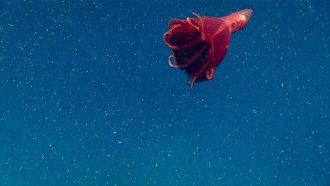 Physics
PhysicsInvisible comet tails of mucus slow sinking flakes of ‘marine snow’
New measurements reveal the gunk that surrounds the particles, an important factor in understanding how the ocean sequesters carbon.
-
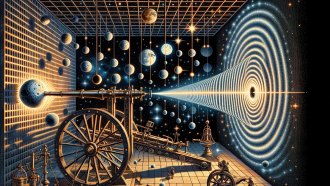 Quantum Physics
Quantum PhysicsA maverick physicist is building a case for scrapping quantum gravity
To merge quantum physics and general relativity, physicists aim to quantize gravity. But what if gravity isn’t quantum at all?
-
 Astronomy
Astronomy50 years ago, astronomers challenged claims that Barnard’s star has a planet
Astronomers have been searching for planets around the sun’s close neighbor for decades.
-
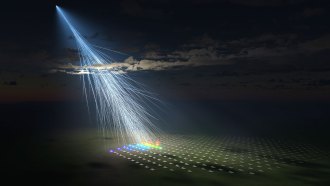 Astronomy
AstronomyA rare, extremely energetic cosmic ray has mysterious origins
In 1991, physicists spotted a cosmic ray with so much energy it warranted an ‘OMG.’ Now that energetic particle has a new companion.
-
 Physics
PhysicsLight, not just heat, might spur water to evaporate
In experiments, light shining on water as much as doubled the evaporation rate expected from heat alone, hinting at a never-before-seen effect.
-
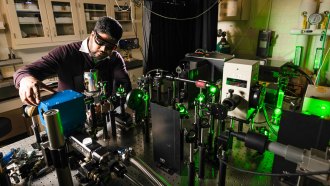 Physics
PhysicsA controversial room-temperature superconductor result has now been retracted
The retraction by Nature is the third for beleaguered physicist Ranga Dias, who still stands by his claim of a room-temperature superconductor.
-
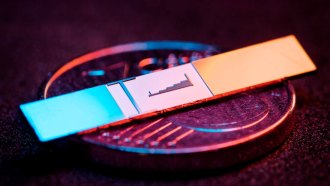 Physics
PhysicsTiny accelerators get electrons up to speed using lasers
In a first, chip-scale accelerators revved up electrons while also confining them into a beam.
-
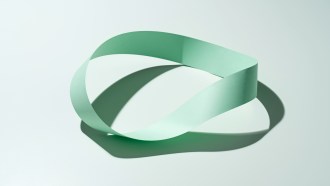 Math
MathAn enduring Möbius strip mystery has finally been solved
Playing with paper and scissors helped one mathematician figure out just how short the twisted loops can be.
-
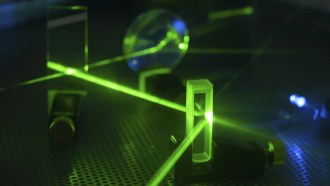 Physics
PhysicsTechnique to see the ultrafast world of electrons wins 2023 physics Nobel
Physicists Pierre Agostini, Ferenc Krausz and Anne L’Huillier won for work creating light bursts that last billionths of a billionth of a second.
-
 Physics
Physics50 years ago, scientists dreamed of lasers that could kick off nuclear fusion
In the 1970s, lasers that could initiate nuclear fusion were a distant dream. Now, scientists are using such lasers to achieve fusion “ignition.”
-
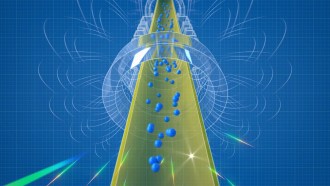
Antimatter falls like matter, upholding Einstein’s theory of gravity
In a first, scientists dropped antihydrogen atoms and measured how they fell.
-
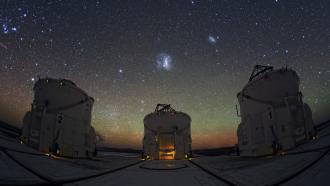 Astronomy
AstronomyAstronomers call for renaming the Magellanic Clouds
Explorer Ferdinand Magellan is not a fitting namesake for the pair of satellite galaxies of the Milky Way, a group of scientists argues.